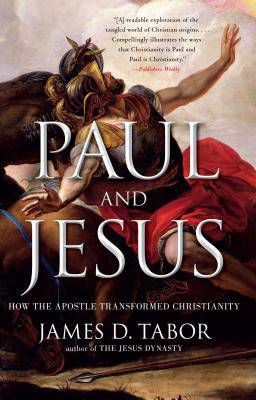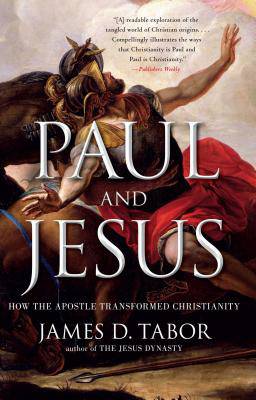
- Afhalen na 1 uur in een winkel met voorraad
- Gratis thuislevering in België vanaf € 30
- Ruim aanbod met 7 miljoen producten
- Afhalen na 1 uur in een winkel met voorraad
- Gratis thuislevering in België vanaf € 30
- Ruim aanbod met 7 miljoen producten
Zoeken
€ 27,95
+ 55 punten
Omschrijving
In this "compulsively readable exploration of the tangled world of Christian origins" (Publishers Weekly), religious historian James Tabor illuminates the earliest years of Jesus' teachings before Paul shaped them into the religion we know today.This fascinating examination of the earliest years of Christianity reveals how the man we call St. Paul shaped Christianity as we know it today. Historians know almost nothing about the two decades following the crucifixion of Jesus, when his followers regrouped and began to spread his message. During this time Paul joined the movement and began to preach to the gentiles. Using the oldest Christian documents that we have--the letters of Paul--as well as other early Chris-tian sources, historian and scholar James Tabor reconstructs the origins of Christianity. Tabor shows how Paul separated himself from Peter and James to introduce his own version of Christianity, which would continue to develop independently of the message that Jesus, James, and Peter preached. Paul and Jesus illuminates the fascinating period of history when Christianity was born out of Judaism.
Specificaties
Betrokkenen
- Auteur(s):
- Uitgeverij:
Inhoud
- Aantal bladzijden:
- 320
- Taal:
- Engels
Eigenschappen
- Productcode (EAN):
- 9781439123324
- Verschijningsdatum:
- 26/11/2013
- Uitvoering:
- Paperback
- Formaat:
- Trade paperback (VS)
- Afmetingen:
- 140 mm x 211 mm
- Gewicht:
- 272 g

Alleen bij Standaard Boekhandel
+ 55 punten op je klantenkaart van Standaard Boekhandel
Beoordelingen
We publiceren alleen reviews die voldoen aan de voorwaarden voor reviews. Bekijk onze voorwaarden voor reviews.








